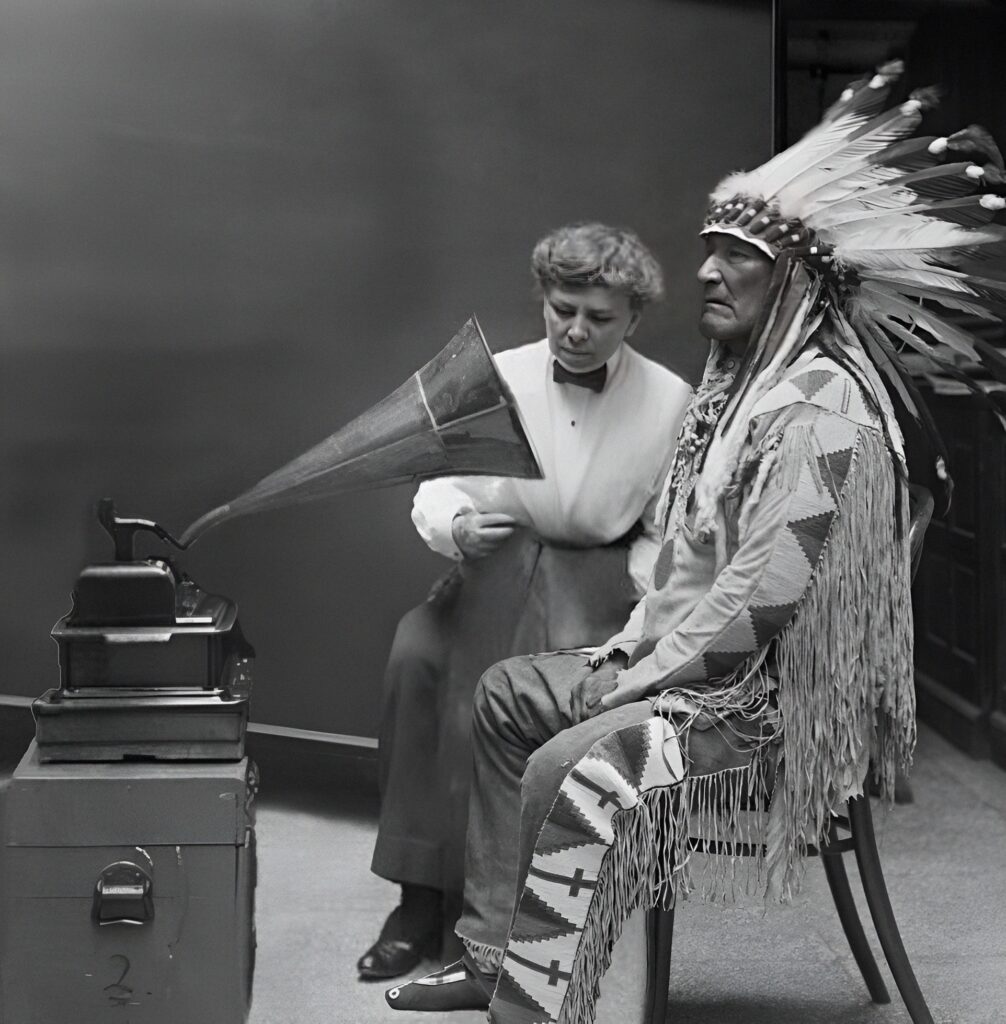
Changing sound perspectives: photomontage of the historic photo of Frances Densmore recording the Mountain Chief of the Blackfoot Confederacy, 1916.

Changing sound perspectives: photomontage of the historic photo of Frances Densmore recording the Mountain Chief of the Blackfoot Confederacy, 1916.
The concepts of repatriation and rematriation are crucial for contemporary sound and audiovisual archives that preserve music of oral tradition. Indeed, these concepts are at the core of important issues in the contemporary debate of the ethnomusicological discipline, such as the processes of decolonization, the development of a participatory, shared, dialogic ethnomusicology, the accessibility of sources through new technologies, the historical dimension of research on music of oral tradition and the use of archival recordings for educational purposes.
Ethnomusicology has been concerned with repatriation for more than three decades. Recent technological, economic, and sociocultural changes, however, have brought forth new questions that call ethnomusicologists to engage in profound reflection. Who are the subjects (individual or collective) entitled of repatriation projects in a global context in which the bonds between territories, ethnicities, languages, and religions are becoming increasingly nuanced? Who holds the rights over the documentation of the past? How do local and global access to archival collections relate to each other in the age of the Web? How can cultural institutions balance the interests of entitled individuals with their mission of public service and make the repatriation and rematriation actions economically sustainable?
The seminar aims to provide an overview of the most up-to-date theories and research methodologies on the topic, but also, and especially, to present some significant good practices that are being implemented today in the perspective of a public ethnomusicology.
Scientific Committee:
Giovanni Giuriati, Fondazione Giorgio Cini
Gianluca Chelini, Università di Roma “La Sapienza”
Costantino Vecchi, Università Ca’Foscari Venezia

Changing sound perspectives: photomontage of the historic photo of Frances Densmore recording the Mountain Chief of the Blackfoot Confederacy, 1916.